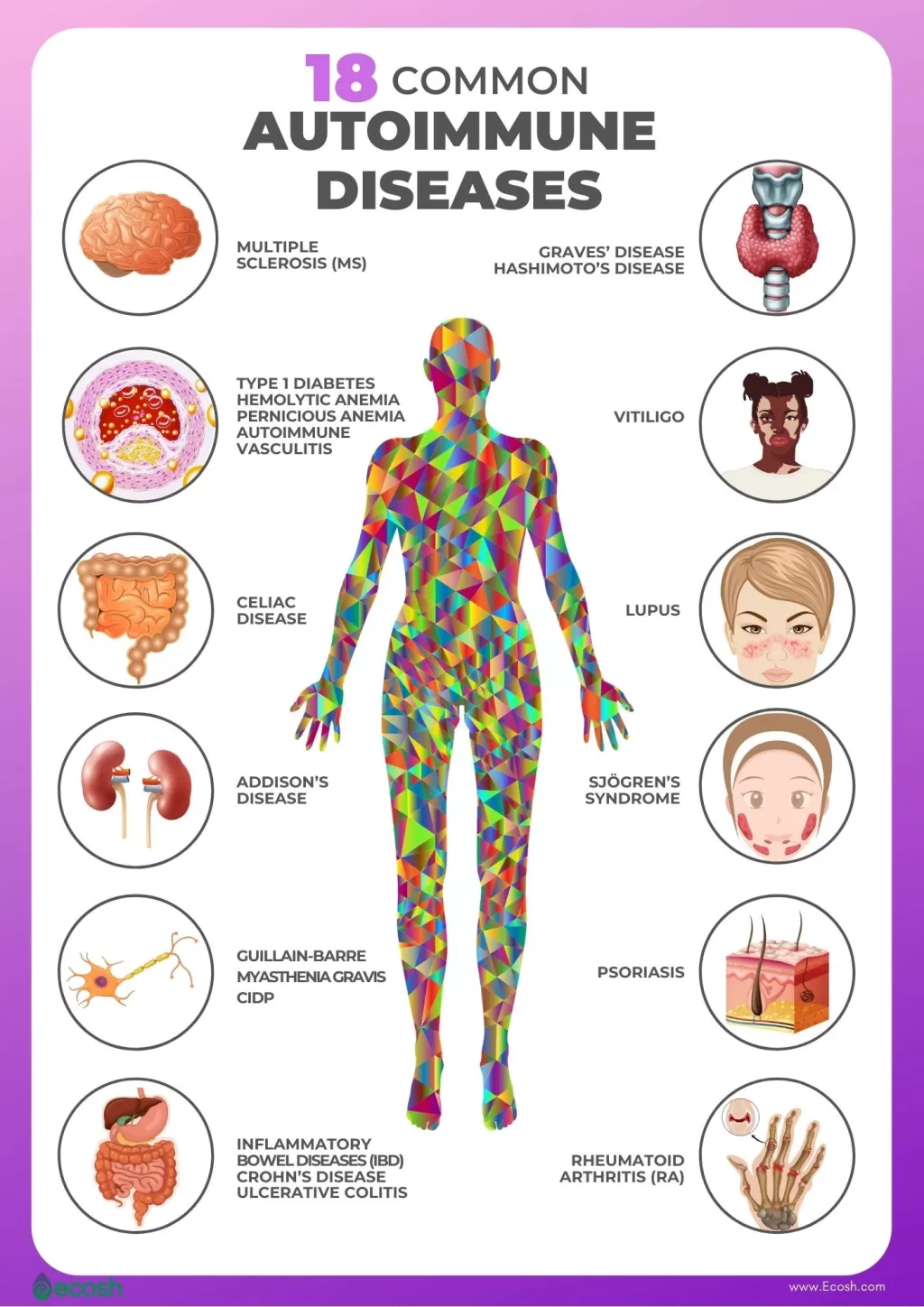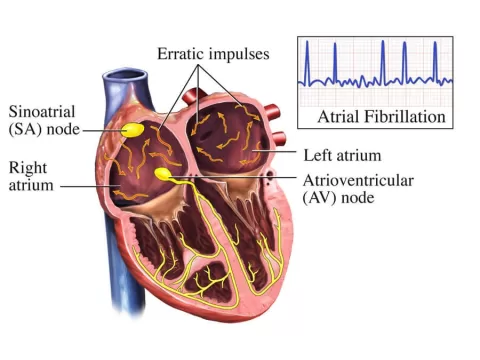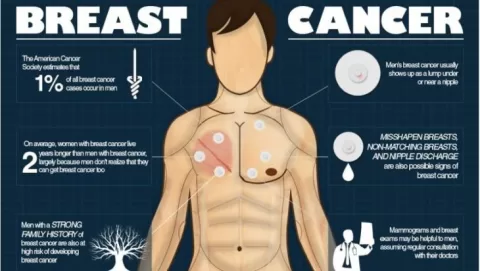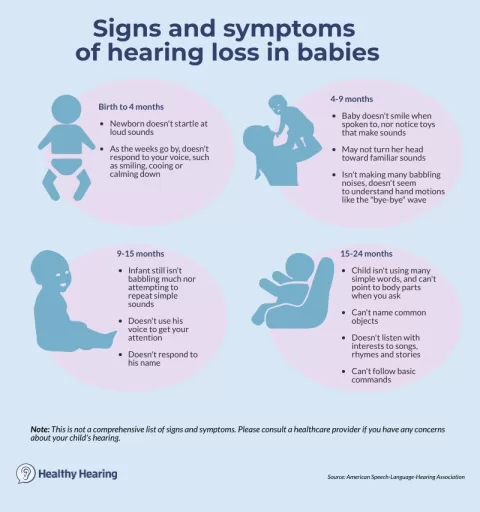Autoimmune conditions, such as type 1 diabetes, multiple sclerosis, and rheumatoid arthritis, represent a complex interplay between the body’s immune system and its own tissues. In these disorders, the immune system mistakenly attacks healthy cells, leading to debilitating symptoms and chronic illness. However, recent advancements in immunology have paved the way for innovative immune system therapies aimed at reprogramming immune responses. These new treatments for autoimmune diseases are not merely about managing symptoms; they seek to reset the immune system entirely, offering hope for lasting relief. As research continues to evolve, the future of autoimmune disease management appears increasingly optimistic, allowing individuals to reclaim their health and quality of life.
When the immune system turns against the body, it can lead to various disorders often referred to as autoimmune diseases. Conditions like lupus, celiac disease, and inflammatory bowel disease (IBD) are just a few examples of this phenomenon. The repercussions of such immune dysfunction can dramatically alter a person’s life, requiring a deeper understanding of both the innate and adaptive immune systems. Fortunately, the emergence of groundbreaking therapies focused on reprogramming the immune response is transforming treatment approaches. This shift not only aims to alleviate symptoms but also addresses the underlying causes of these chronic conditions.
Understanding Autoimmune Conditions: A Closer Look
Autoimmune conditions, such as type 1 diabetes, multiple sclerosis, and rheumatoid arthritis, occur when the body’s immune system mistakenly attacks its own cells. This misdirected immune response can lead to a range of debilitating symptoms, making daily life challenging for those affected. The underlying mechanisms of these disorders are complex and often involve both genetic and environmental factors. As our understanding of immunology grows, so does our awareness of how these conditions can be managed and potentially reversed.
The challenge with autoimmune diseases lies in their nature; they do not have a one-size-fits-all treatment. Traditional therapies primarily focus on suppressing the immune system, which may alleviate symptoms but does not address the root cause. Recent research into immune system therapies aims to reprogram the immune response, offering hope for a more holistic approach to autoimmune disease management. This shift in focus could lead to innovative treatments that not only manage symptoms but also promote long-term remission.
Innovations in Immune System Therapies
Recent advancements in immunology have led to groundbreaking therapies designed to target and reset the immune system. These new treatments for autoimmune diseases show promise by reprogramming the immune response rather than merely suppressing it. For example, some therapies are being developed to retrain the immune system to differentiate between harmful pathogens and the body’s own healthy cells, which could dramatically reduce the incidence of autoimmune attacks.
Clinical trials are already underway for several of these innovative treatments, and early results are encouraging. Patients who have undergone these therapies report significant improvements in their quality of life, with some even achieving long-lasting symptom relief from conditions that previously seemed intractable. As researchers like Andrew Hudson Pere Santamaria continue to explore these possibilities, the future looks bright for those living with autoimmune conditions.
The Role of Reprogramming Immune Response in Treatment
Reprogramming the immune response is a pivotal concept in the treatment of autoimmune diseases. This approach involves altering the way the immune system identifies and reacts to its own tissues, essentially teaching it to stop attacking the body. Techniques such as targeted therapies and biologics are at the forefront of this strategy, providing a tailored approach to treatment that is informed by the unique characteristics of each patient’s condition.
By focusing on the underlying causes of autoimmunity, rather than just the symptoms, these therapies could revolutionize the management of autoimmune diseases. Patients may experience fewer side effects compared to traditional immunosuppressants, as the goal is to restore normal immune function rather than simply dampening it. The implications of successful immune reprogramming extend beyond individual health, potentially reducing the overall burden of autoimmune diseases on healthcare systems worldwide.
Challenges in Autoimmune Disease Management
Despite the progress in understanding and treating autoimmune conditions, significant challenges remain. Many patients face a long journey to diagnosis, often experiencing years of uncertainty and misdiagnosis. The complexity of autoimmune diseases, with their myriad symptoms and potential comorbidities, complicates effective management. Furthermore, the side effects of existing treatments, such as corticosteroids, can significantly impact patients’ quality of life, prompting the need for more targeted approaches.
Another challenge is the variability in response to treatment among individuals. What works for one patient may not work for another due to differences in genetic makeup, environmental factors, and overall health. As researchers delve deeper into the mechanisms of autoimmunity, there is hope that personalized medicine approaches will emerge, allowing for treatments that are specifically tailored to the unique immune profiles of each patient, ultimately leading to better outcomes in autoimmune disease management.
The Future of Autoimmune Disease Research
The future of autoimmune disease research is filled with potential as scientists and clinicians work collaboratively to uncover new insights into these complex conditions. Ongoing studies are examining the role of the microbiome, genetic predispositions, and environmental triggers in the development of autoimmune disorders. Understanding these factors could lead to preventive strategies and more effective treatment options.
Moreover, with advancements in technology, such as gene editing and personalized medicine, researchers are better equipped to tackle the challenges posed by autoimmune diseases. The integration of data from diverse fields—including genomics, immunology, and patient-reported outcomes—will likely enhance our understanding of these conditions and drive the development of innovative therapies that provide lasting relief for patients.
Impact of Lifestyle on Autoimmune Conditions
Lifestyle choices play a critical role in the management of autoimmune conditions. Diet, exercise, stress management, and sleep can all influence the immune system’s function and, consequently, the severity of autoimmune symptoms. Adopting a holistic approach that encompasses these lifestyle factors is essential for individuals looking to manage their conditions effectively.
Recent studies have shown that certain dietary interventions, such as anti-inflammatory diets, can help reduce symptoms and improve overall health in patients with autoimmune diseases. Regular physical activity not only enhances physical well-being but also has been linked to improved immune function. By focusing on lifestyle modifications alongside medical treatments, patients may find a more comprehensive strategy for managing their autoimmune conditions.
The Importance of Support Networks for Patients
For those living with autoimmune conditions, support networks can provide invaluable resources and emotional backing. Connecting with others who share similar experiences can help patients feel less isolated and provide practical advice on managing symptoms and navigating treatment options. Support groups, both in-person and online, have become essential for many individuals as they seek community and understanding.
Moreover, integrating support networks into the treatment plan can enhance patient outcomes. Healthcare providers are increasingly recognizing the importance of psychosocial support in managing chronic illnesses. By fostering connections within communities and promoting open discussions about health challenges, patients can feel empowered to take an active role in their autoimmune disease management.
Exploring New Clinical Trials for Autoimmune Disorders
Clinical trials are crucial for advancing our understanding of autoimmune disorders and developing new therapies. These studies not only test the safety and efficacy of emerging treatments but also provide patients with access to cutting-edge interventions that may not yet be available through standard care. Participation in clinical trials can offer hope for those who have exhausted other treatment options.
As researchers explore various avenues—from novel drug formulations to innovative immune system therapies—patients are encouraged to consider enrolling in trials. This involvement not only contributes to scientific advancement but also helps participants gain firsthand experience with potential new treatments. Staying informed about ongoing clinical trials can empower patients to make choices that align with their treatment goals.
The Role of Education in Autoimmune Disease Awareness
Education plays a vital role in raising awareness about autoimmune diseases and fostering understanding among patients and healthcare providers alike. Increasing knowledge about the symptoms, causes, and treatment options available can lead to earlier diagnoses and more effective management strategies. Educational initiatives, such as workshops and seminars, have become essential in disseminating information to both the public and professionals.
Furthermore, educating patients about their conditions empowers them to take control of their health. Understanding the intricacies of autoimmune disorders can enable individuals to make informed decisions regarding their treatment plans and lifestyle choices. As awareness grows, it paves the way for increased research funding and support, ultimately benefiting those affected by autoimmune conditions.
Frequently Asked Questions
What are some common autoimmune conditions and their impacts on the immune system?
Autoimmune conditions such as Type 1 diabetes, inflammatory bowel disease (IBD), multiple sclerosis, rheumatoid arthritis, celiac disease, and lupus arise when the immune system mistakenly attacks the body’s own tissues. These disorders can lead to a variety of symptoms and complications, emphasizing the need for effective autoimmune disease management to help individuals maintain their quality of life.
How do new therapies reprogram the immune response in autoimmune diseases?
New therapies in immunology focus on reprogramming the immune response to address the underlying causes of autoimmune diseases. By targeting specific pathways in the immune system, these innovative treatments aim to reset the immune response, potentially alleviating symptoms and providing long-term relief for conditions like multiple sclerosis and rheumatoid arthritis.
What role do immune system therapies play in managing autoimmune diseases?
Immune system therapies play a crucial role in managing autoimmune diseases by modulating the immune response. These therapies can reduce inflammation and prevent the immune system from attacking healthy tissues, which is essential for improving the quality of life for patients suffering from conditions like lupus and IBD.
What advancements are being made in the treatment of autoimmune conditions?
Recent advancements in the treatment of autoimmune conditions include the development of therapies that can reset the immune system. Clinical trials are showing promising results, with some patients experiencing prolonged periods of symptom relief after just one dose, suggesting a potential shift in the landscape of autoimmune disease management.
How can understanding autoimmune conditions improve treatment outcomes?
Understanding autoimmune conditions is vital for improving treatment outcomes. As researchers like Andrew Hudson Pere Santamaria uncover the mechanisms behind these diseases, it paves the way for new immune system therapies that accurately target the root causes, rather than merely suppressing symptoms. This knowledge is crucial for developing effective treatments and enhancing patient care.
Are there any new treatments for autoimmune diseases on the horizon?
Yes, there are several new treatments for autoimmune diseases on the horizon, particularly those focusing on reprogramming the immune response. These cutting-edge therapies are currently undergoing clinical trials, and early results indicate they may offer significant relief and even prolonged symptom-free periods for patients dealing with various autoimmune conditions.
| Autoimmune Condition | Description | Current Treatment Challenges | Emerging Therapies |
|---|---|---|---|
| Type 1 Diabetes | Body attacks insulin-producing cells in the pancreas. | Requires lifelong insulin therapy; does not address underlying issues. | New therapies aim to reset the immune response. |
| Inflammatory Bowel Disease (IBD) | Chronic inflammation of the digestive tract. | Current treatments suppress immune function, leading to side effects. | Innovative treatments may target the root cause of inflammation. |
| Multiple Sclerosis | Attacks the protective covering of nerves, leading to various neurological symptoms. | Existing drugs mainly manage symptoms without curing the disease. | New therapies being developed to reprogram the immune system. |
| Rheumatoid Arthritis | Autoimmune attack on joints causing pain and inflammation. | Current drugs mainly relieve symptoms but do not prevent progression. | Research into therapies that can halt disease progression is underway. |
| Celiac Disease | Immune reaction to gluten affecting the small intestine. | Strict gluten-free diet is the only current treatment. | Emerging therapies could help those who cannot adhere to the diet. |
| Lupus | Affects multiple organs with varying symptoms due to immune system attack. | Treatments mainly control symptoms rather than cure the disease. | New approaches show potential for long-term remission. |
| Myasthenia Gravis | Causes muscle weakness and can affect breathing and vision. | High doses of corticosteroids can cause significant side effects. | Research into immune reprogramming shows promise for better management. |
Summary
Autoimmune conditions are the result of the body’s immune system mistakenly attacking its own tissues, leading to various chronic health issues. The current landscape of treatment primarily revolves around suppressing immune responses, which often only manage symptoms rather than address the underlying causes. However, advancements in immunology are paving the way for new therapies that aim to reset the immune system. These innovative approaches could potentially lead to long-lasting relief and even remission for individuals suffering from these debilitating disorders. With ongoing research and clinical trials, there is renewed hope that we may soon see significant breakthroughs in the management and treatment of autoimmune conditions.
The content provided on this blog (e.g., symptom descriptions, health tips, or general advice) is for informational purposes only and is not a substitute for professional medical advice, diagnosis, or treatment. Always seek the guidance of your physician or other qualified healthcare provider with any questions you may have regarding a medical condition. Never disregard professional medical advice or delay seeking it because of something you have read on this website. If you believe you may have a medical emergency, call your doctor or emergency services immediately. Reliance on any information provided by this blog is solely at your own risk.








